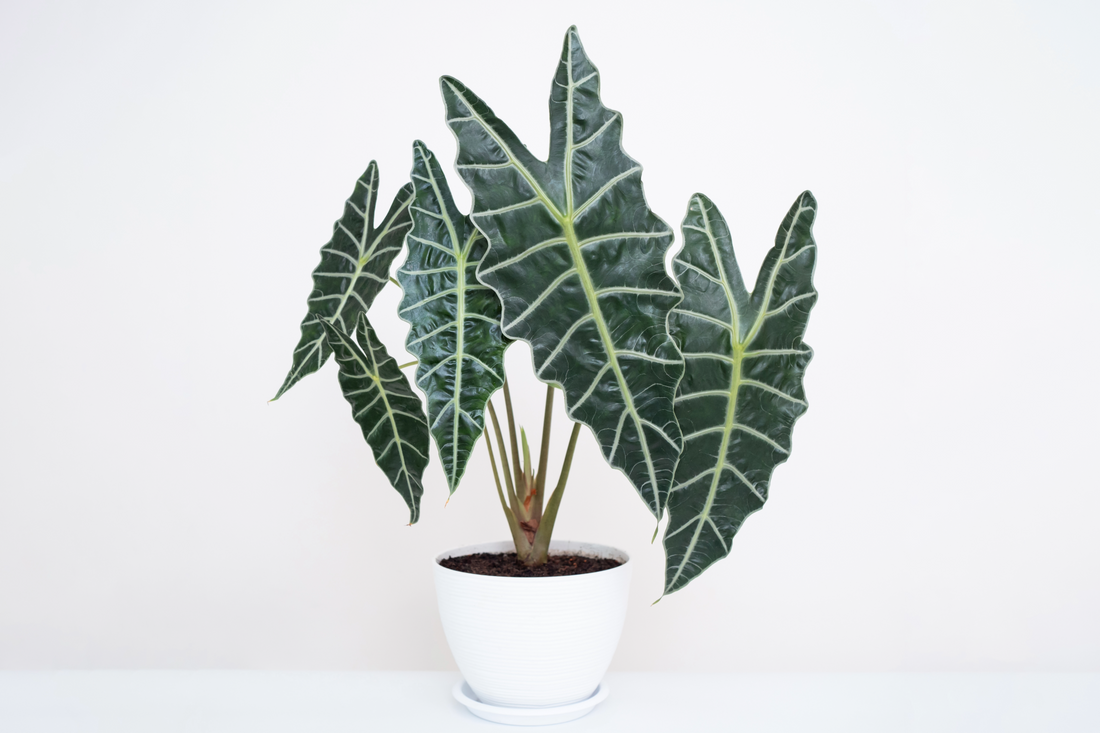
How to take care of: Alocasia Polly 'African Mask'
Share
Are you on the hunt for a unique and stunning addition to your plant family? Look no further than the Alocasia Polly, also affectionately known as the African Mask Plant. Stick around as we delve into the care tips and tricks to make sure your Alocasia Polly doesn't just survive but thrives!
Unveiling the Alocasia Polly 'African Mask':
Native to subtropical Asia and Eastern Australia, Alocasia Polly belongs to the Araceae family. This unique gem sports dark, arrow-shaped leaves that evoke the feel of an African mask—hence its common name.
Fun Fact: The term "Polly" is often considered a commercial designation rather than a scientific name.

Alocasia Polly Basic Care:
- Sunlight Needs: Medium to bright, indirect light
- Watering Frequency: When the top 1-2 inches of soil are dry
- Preferred Humidity: High
- Ideal Temperature: 60°F-75°F (16°C-24°C)
- Fertilization Schedule: Every 6 weeks during growing season
- Potting Mix: Fast-draining soil with good aeration
In-Depth Care Guidelines:
Sunlight:
Alocasia Polly prefers medium to bright, indirect sunlight. Direct sunlight can scorch its dramatic leaves, so keep that in mind.
Watering:
Water your plant when the top 1-2 inches of soil are dry. Overwatering can cause root rot, which is a common problem for Alocasias.
Humidity:
The African Mask Plant thrives in high humidity. You can achieve this by misting it, using a humidifier, or placing it on a pebble tray.
Temperature:
Ideal temperatures for this plant range between 60°F and 75°F (16°C-24°C). It's sensitive to cold drafts, so keep it away from windows and air conditioners.
Troubleshooting Common Issues:
- Yellow Leaves: Indicates overwatering. Allow soil to dry before the next watering.
- Droopy Leaves: Often a sign of low humidity. Increase humidity levels.
- Brown Edges: Generally means the plant is getting too much light. Adjust placement.
Additional Pro Tips:
- The Alocasia Polly goes dormant in winter. Reduce watering during this period.
- You can propagate it by division during repotting.
- The plant's toxicity makes it resistant to most pests, but keep an eye out for spider mites.
Pet Safety:
The Alocasia Polly contains oxalates that are toxic to pets. Keep it well out of reach of your furry companions.
Precautions:
Position your Alocasia Polly away from air vents, heaters, and drafts. Sudden changes in temperature can shock the plant, leading to various health issues.
Conclusion:
The Alocasia Polly is a dramatic, unique plant that can be a stunning centerpiece in your indoor garden. Follow our specialized care guide, and you'll have a happy, healthy African Mask Plant.
